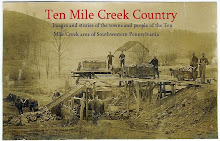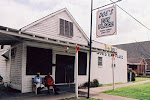Friday, October 2, 2009
Florence Foster Jenkins - Worst Opera Singer Ever Recorded
This lady's voice reminds me of Alfalfa's when he used to sing opera on the Our Gang shows .
Florence Foster Jenkins was born on July 19, 1868, in Wilkes-Barre, Pa. She received music lessons as a child, and expressed a desire to go abroad to study music. Her wealthy father refused to pay the bill, so she eloped to Philadelphia with Frank Thornton Jenkins, a medical doctor. She earned a living there as a teacher and pianist. Upon her father's death Jenkins inherited a sum of money which allowed her to take up the singing career that had been discouraged by her parents and now former husband. She became involved in the musical life of Philadelphia, and later New York City, where she founded and funded the Verdi Club, took singing lessons, and began to give recitals, her first in 1912. Her mother's death in 1928 gave her additional freedom and resources to pursue singing.
From her recordings, it is apparent that Jenkins had little sense of pitch and rhythm and was barely capable of sustaining a note. Her accompanist can be heard making adjustments to compensate for her tempo variations and rhythmic mistakes. Her dubious diction, especially in foreign language songs, is also noteworthy. Nonetheless, she became tremendously popular in her unconventional way. Her audiences apparently loved her for the amusement she provided rather than her musical ability.
Despite her patent lack of ability, Jenkins was firmly convinced of her greatness. She compared herself favorably to the renowned sopranos of the day and dismissed the laughter which often came from the audience during her performances as coming from her rivals consumed by "professional jealousy." She was aware of her critics, however, saying "People may say I can't sing, but no one can ever say I didn't sing."
The music Jenkins tackled in her recitals was a mixture of the standard operatic repertoire by Wolfgang Amadeus Mozart, Giuseppe Verdi and Johann Strauss (all of them well beyond her technical ability), and songs composed by herself or her accompanist, Mr. Cosmé McMoon, who reportedly made faces at Jenkins behind her back to get laughs.
Jenkins often wore elaborate costumes that she designed herself, sometimes appearing in wings and tinsel, and, for Clavelitos, throwing flowers into the audience while fluttering a fan and sporting more flowers in her hair. After each performance Cosmé McMoon would collect these flowers from the auditorium in readiness for redistribution at the next one.
After a taxicab crash in 1943 she found she could sing "a higher F than ever before." Instead of a lawsuit against the taxicab company, she sent the driver a box of expensive cigars.
In spite of public demand for more appearances, Jenkins restricted her rare performances to a few favorite venues, and her annual recital at the Ritz-Carlton ballroom in New York City. Attendance at her recitals was always limited to her loyal clubwomen and a select few others — she handled distribution of the coveted tickets herself. At the age of 76, Jenkins finally yielded to public demand and performed at Carnegie Hall on October 25, 1944. So anticipated was the performance that tickets for the event sold out weeks in advance. Jenkins died a month later.
Subscribe to:
Post Comments (Atom)
































3 comments:
It was Cosme McMoon's predecessor, Edwin McArthur, who made faces behind Jenkins' back. He was immediately fired.
Donald Collup
Producer of the DVD: "Florence Foster Jenkins: A World Of Her Own"
She didn't yield to public demand. Like many republicans with old money, she was delusional. She actually believed that she was in the possession of an operatic voice. When she read the reviews subsequent to her 'Carnegie Hall' concert and had a little time for the authenticity of the concert hall laughter to sink in, it killed her. She was a tragic character and her life was one of bathos.
I first heard this lady "sing" on a CD from a Classical Music magazine, it was an April edition and I wrote and congratulated them on a fabulous April Fools joke...duh. And then the full CD came out. I read somewhere that she used to pay people to attend her concerts, but that may be folklaw rather than reality. Nice to see her get a mention though!
Post a Comment